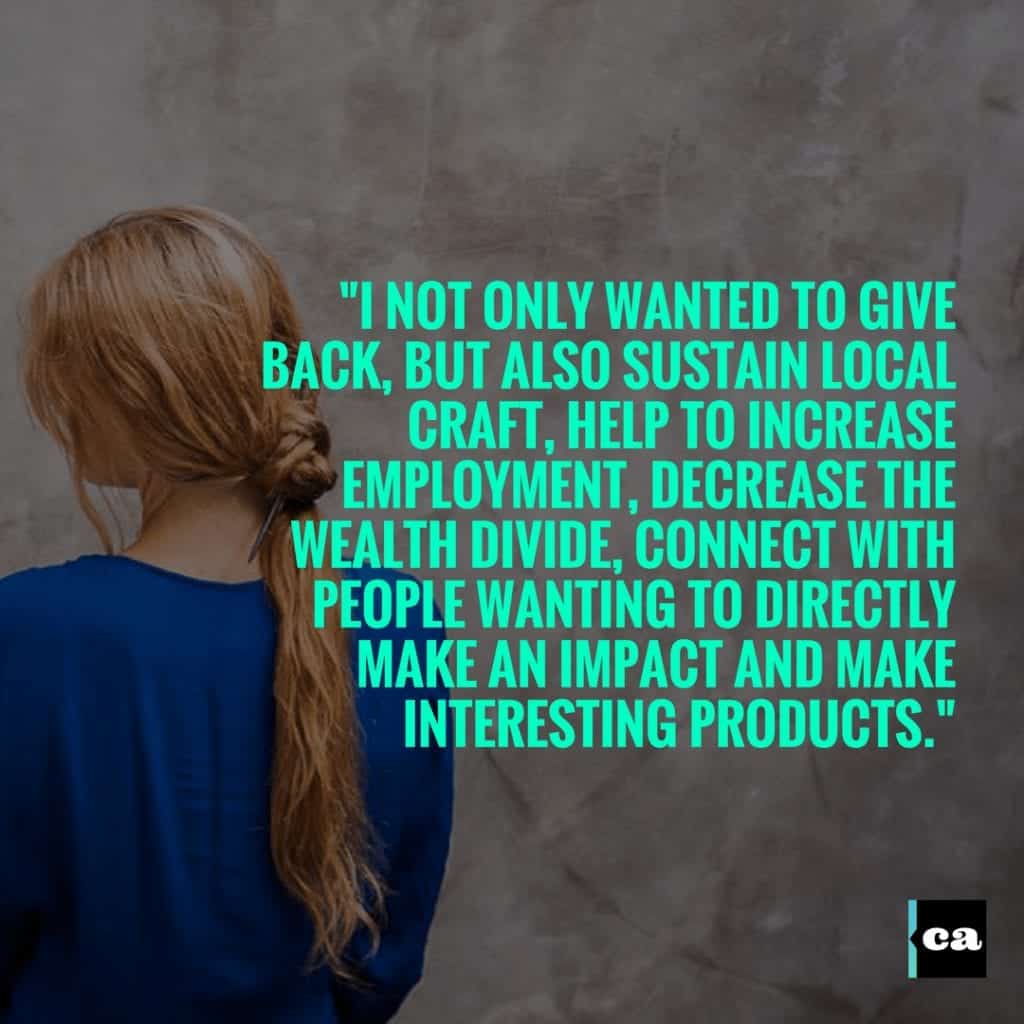Meet S a y a Designs, the new social enterprise creates ethical wooden hairpins from roots salvaged from old plantations. Each hairpin purchased will plant up to 10 endangered trees. The new company believes being environmentally friendly is fashionable in itself.
Inspired by nature and handmade by Balinese artisans. Using root wood salvaged from old plantations, each hairpin completes an amazing cycle, as every purchase plants up to 10 endangered tree species back into the rainforests in Indonesia.
Th company has launched a (successful)Kickstarter campaign to bring their dream to the marketplace. With your help, they will be able to grow and build into a larger platform and able to have real impact.
Below is a Q&A with the Co-Founder of S a y a Designs, Victoria Jones!!!!
Tell us the history behind S a y a Designs.
S A Y A started as a testing ground in making things for myself. I have always been heavily inspired by the processes in crafts. Both traditional and contemporary. I am fascinated with materials, textures and shapes, especially those that are natural and organic. Making things for myself has been fun and lead me to ask bigger questions about who makes the things I love, how and why they make what they make.
I wanted to do something in life that wasn’t just purely for personal gain. Something that was more than just the basic criteria needed for calling the business “sustainable”. I realized it was a bendy word and I wanted to try my best to give as much depth I can to the word.
So, I started S A Y A as a business to create that responsibility! Researching the logging industry in Indonesia opened a can of worms, but I was determined to not let that demotivate me! I continued to ask questions about peoples practices and didn’t stop until I felt I could do something in a way that I felt was honest and authentic.
I not only wanted to give back and support the world which I love so much, but also sustain local craft, help to increase employment, decrease the wealth divide, connect with people wanting to directly make an impact and make interesting products.
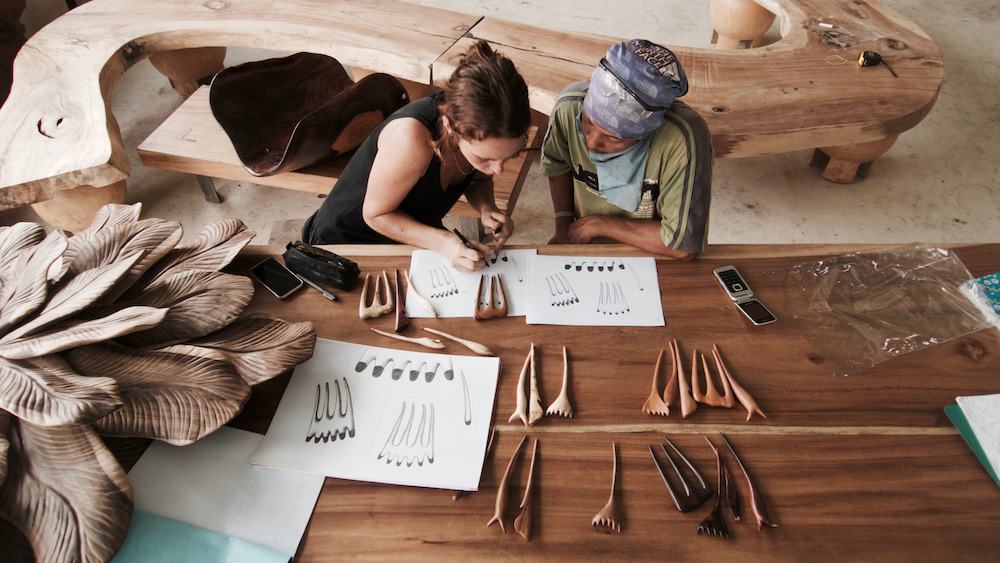
What does the production process look like for creating these unique hair pins?
I draw the designs based on inspirations from nature and usually start off by creating quite life like, yet abstract, drawings. I then work with two Balinese craftsman Made and Wayan to carve them in to a prototype. They are both very talented sculptors and often understand exactly what I am looking for. Wayan carves away to create the detail in each design. Some have joins and intricate details which they do with various wood working tools and traditional techniques. Pins are used to secure the joins, slits are made on the connecting surfaces and wood glue is used to make sure its firm. There are many types of sandpapers used to polish it down until the finest grade. This allows it to be very smooth and soft. We then experimented with many ways to protect the wood using natural oils and waxes. We found a local natural wax worked best.
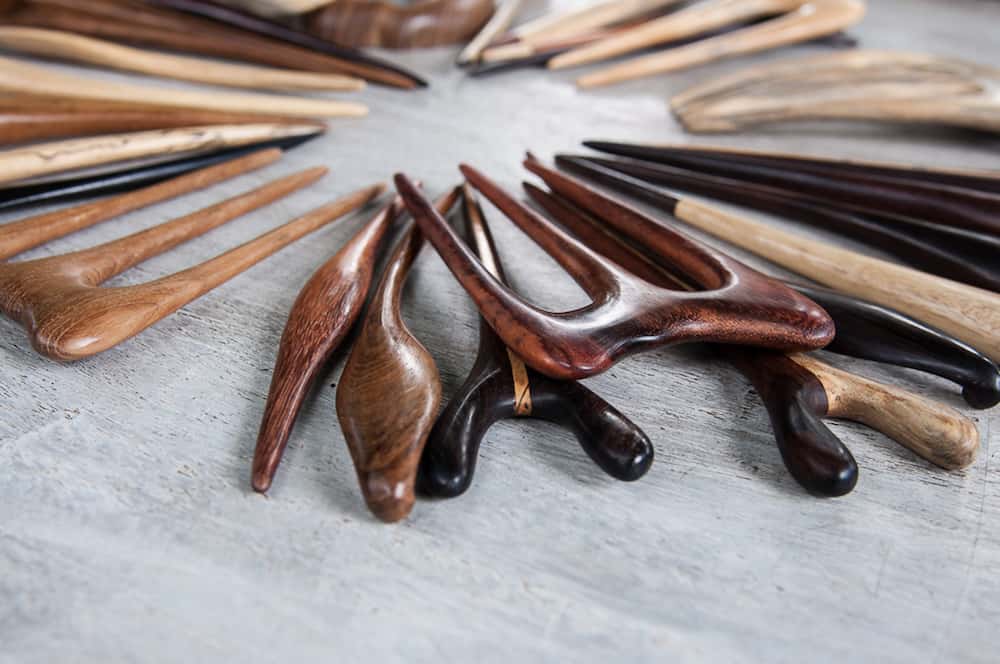
Tell us about the endangered trees each hair pin supports back in Indonesia.
I knew that many tropical hard woods where being exploited in the early stages of S A Y A and was worried that their was little local knowledge or awareness in regards to the amount of wood sourced from Indonesia and its high volume of production rate around the world. I went on a quest and asked many questions trying to find out about local species, their origins, various names in local dialects and realized it was very complicated. I started emailing environmentalist working for respected organizations such as Flora and Fauna international. They where really helpful and past me down to regional departments and smaller organizations working locally. I visited them, asked more questions and asked why people don’t make it illegal to keep trading exotic woods. They said it often came down primarily to a lack of education in poorer, more remote places.
After visiting these organizations, I partnered with a company called Gaia. Gaia was the most knowledgable, honest and deeply moral rainforest focused NGO, that I came across whilst looking in Indonesia. Gaia works directly with famers and communities to protect their ecosystems. By helping these small communities to become self sufficient, they are decreasing the amount of farmers that sell out to large companies for use as plantations. Gaia teach the community to plant local fruit species which they call ‘Multiple Tree Species’ as well as hard wood species. This way the communities can benefit and earn extra income at the same time as protecting their environments.
Hard woods can take hundreds of years to mature and are therefore much less profitable in as fruit species.
The hardwoods are also used to sell carbon credits to international businesses which give Gaia additional income. Overall its a great circular system which we are adding and raising awareness too. A big part for me was making my actions have meaning, so not only planting one tree but up to ten. So people can learn, get involved and feel they are giving back.
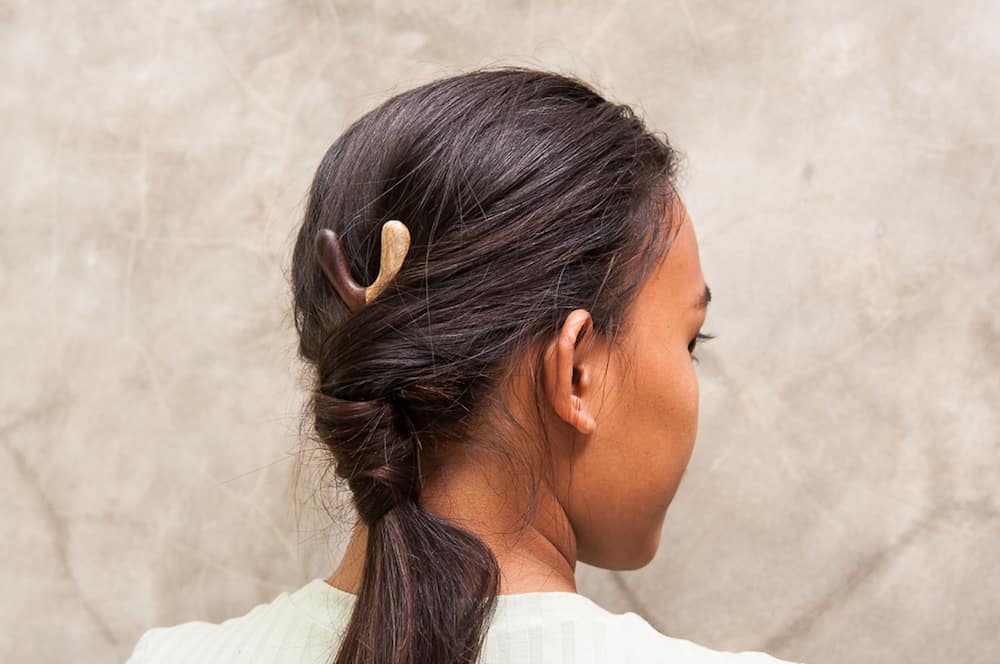
Tell us about your 2018 discovery tour in Indonesia!
What fun that will be! I am going to collaborate with those who wish to come and focus, learn and enjoy the rich diversity Bali has to offer. Its a great place to learn things in regards to environmental education. There are so many activities, workshops and ways to get immersed in agriculture, culture, arts, tradition, environment and nature. We will create a tour that involves immersion in environmental programs, meeting NGO’s, visiting green schools and sustainable homes. We will learn and ask questions about how we can live and work more sustainably with nature for our futures. We will get to meet the artisans swell as visit the community micro greens in Lombok island. On top of that, we will delve into arts and crafts to experience the richness and beauty of the handmade and creative process.
We will go through all the circular stages of S A Y A and discuss the road ahead!
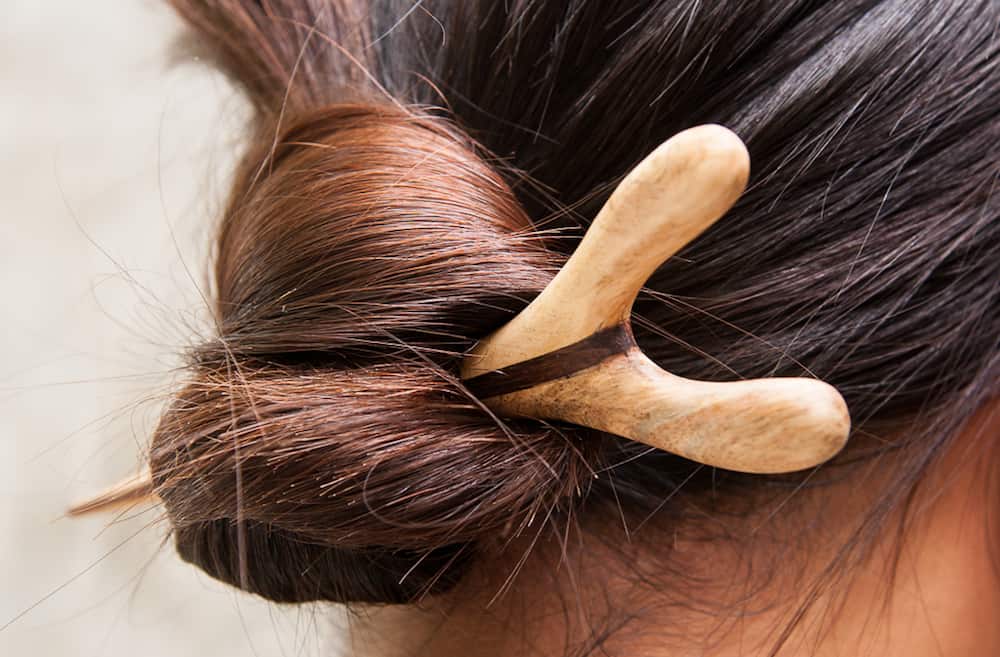
Why wooden hairpins? We are so curious!
Well, in short, I had worn them for years and had made a few for myself. When searching for ways to create solutions to the problems I was seeing I had the idea. The pieces of offcuts from these roots matched as a perfect fit to something small, functional and unique. I thought about how it would be something you use everyday and what a great talking point it would be!
